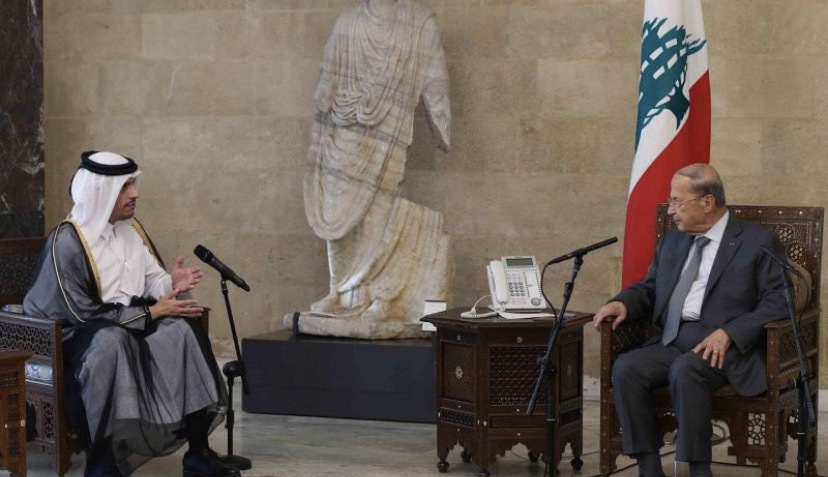In May, Lebanon held its first parliamentary elections since 2018.
Qatar’s Foreign Minister Sheikh Mohammed bin Abdulrahman Al Thani landed in Lebanon on Thursday in his first such visit since last year, as reports confirmed an Arab League meeting in Beirut this weekend.
The Qatari diplomat was received by his Lebanese counterpart Abdullah Bou Habib as well as the countries’ mutual ambassadors, according to Beirut’s news agency (NNA).
The visit comes as Lebanese government officials said Beirut is scheduled to host an Arab League meeting that will be attended by major regional players as well as the bloc’s Secretary General Ahmed Aboul Gheit.
This comes ahead of the full Arab League summit, scheduled to take place in Algeria in November.
Qatari assistance
Sheikh Mohammed travelled to the crises-hit country mid-last year, when he offered to provide Qatari assistance amid Lebanon’s socio-economic turmoil.
At the time, Qatar expressed its commitment to providing the Lebanese army with 70 tonnes of food per month for an entire year to help alleviate some burdens for authorities in Beirut.
In another trip to Beirut in February last year, Qatar’s foreign minister also expressed his readiness to support Lebanon’s economy once it forms a government.
In May, Lebanon held its first parliamentary elections since 2018 and the first since the 2019 revolution against the ruling elite. The revolution also saw the resignation of then-Prime Minister Saad Hariri.
Hariri ended his political career in January this year.
Since then, conditions in Lebanon have continued to worsen, especially after the currency lost 90% of its value to the US dollar. The population has also been unable to access their savings from local banks.
Meanwhile, the public have been left disappointed with the results of the elections, with previous hopes to vote out politicians they blame for the country’s economic turmoil falling on deaf ears.
In February this year, Sheikh Mohammed stressed the need to address Lebanon’s political divide to resolve its decades-long crises.
“Unfortunately, the people of Lebanon are being under a lot of political pressure from their own political leaders. This is what resulted at the end of the day with what we have seen now with these divisions,” he said.
Speaking about efforts to find to find a diplomatic solution in Lebanon, Sheikh Mohammed said the sectarian system remains a burden.
“We see some of the political leaders with a desire to change, but unfortunately there’s something in the system that’s holding everyone back.”







